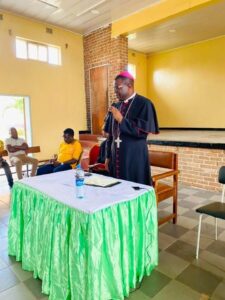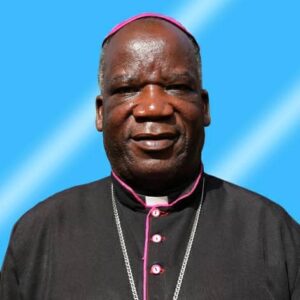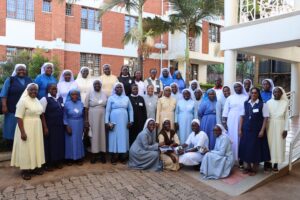AMECEA/CCC: Project Officer Creates Awareness about Catholic Care for Children to Win Hearts and Minds
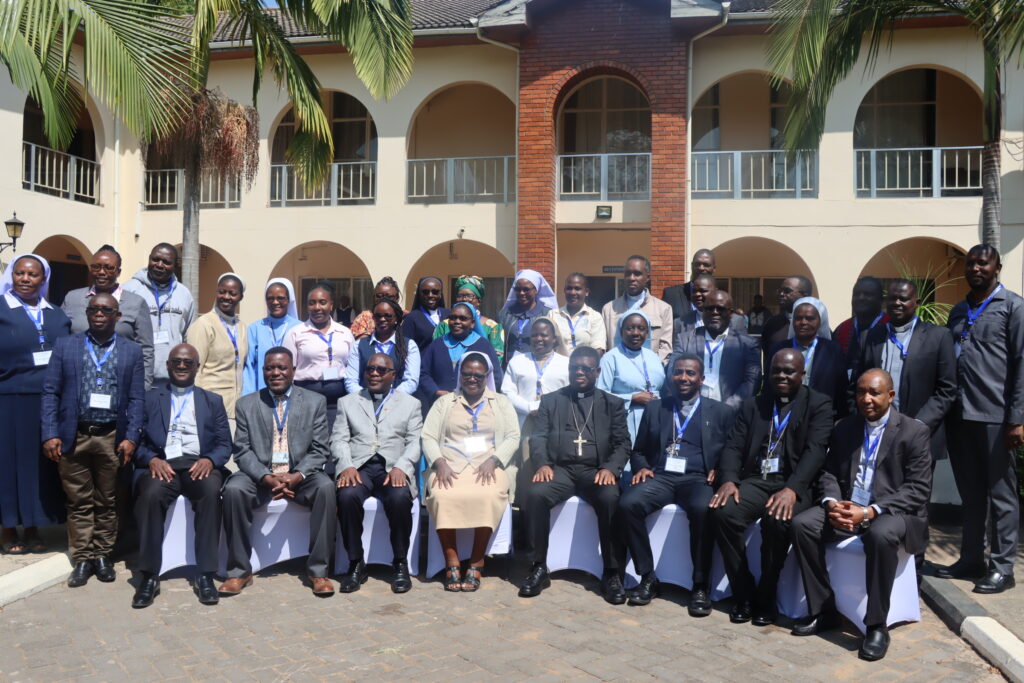
Group Photo; CCC Covening in Lusaka, Zambia
Sr. Jecinter Antoinette Okoth, FSSA
To aid in the realization of having a holistic family and community- based care of vulnerable children in the Association of Member Episcopal Conferences in Eastern Africa (AMECEA) region, a project officer for the Catholic Care for Children in Kenya (CCC-K) has enlightened participants at a convening in Zambia to win their hearts so as to embrace the initiative.
Addressing over 30 participants from the AMECEA region comprising of Bishops, national leaders for Pontifical Missionary Societies (PMS) and Catholic Women Association (CWA), the CCC coordinators and program officers as well as lay leaders for the family apostolate, Sr. Delvin Mukhwana stressed the significance of paradigm shift on caring for vulnerable children the society.
According to the nun, creating awareness to the people in the region on the need for alternative care for children is to help “improve the lives of children by working towards a just, peaceful, and healthy future.”
The member of the congregation of Daughters of the Heart of Mary (DHM), informed participants for the two-day conference being held at Kapingila house in Lusaka that the sisters-led project “whose leadership and service have often embodied the best of the Christian mandate to care for those in need, is animated by the charism of care.”
“Through the International Union of Superiors General (IUSG), national associations of Religious, and other appropriate groups, CCC is building capacity to express a charism of care for children in today’s world, to reduce recourse to institutional care, and to encourage family- and community-based care for children,” Sr. Mukhwana narrated and disclosed that the CCC project is currently being implemented in two continents; Africa and Asia.
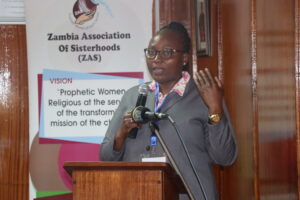
Sr. Mukhwana who works under the Association of Sisterhoods of Kenya (AOSK) echoed St. John Paul II’s message on the essence of family-based care of children saying, “The first and fundamental structure for “human ecology” is the family, in which man receives his first formative ideas about truth and goodness, and learns what it means to love and to be loved, and thus what it actually means to be a person.”
She disclosed that the CCC project is anchored on strong pillars based on Catholic teachings including being “rooted in the touchstones of the Catholic faith, especially the Biblical mandate, the principles of Catholic Social Teaching which emphasizes on the dignity of each person and the right of each person to participate fully in family and community.”
Furthermore, the project is “Informed by social sciences that are clear about the importance of nurturing family bonds for holistic, healthy development across life span and is also aligned with the United Nations Convention on the rights of the child that spells out the child’s right to a family and guidelines for alternative care of children who are separated from their families,” she said.
Besides the pillars, CCC “recognizes the importance of collaboration and Welcomes partnerships within church communities and beyond to realize the best possible outcomes for children and their families,” and at the same time “Contributes to sustainable development and respects national legal frameworks and local cultures,” Sr. Mukhwana concluded.
